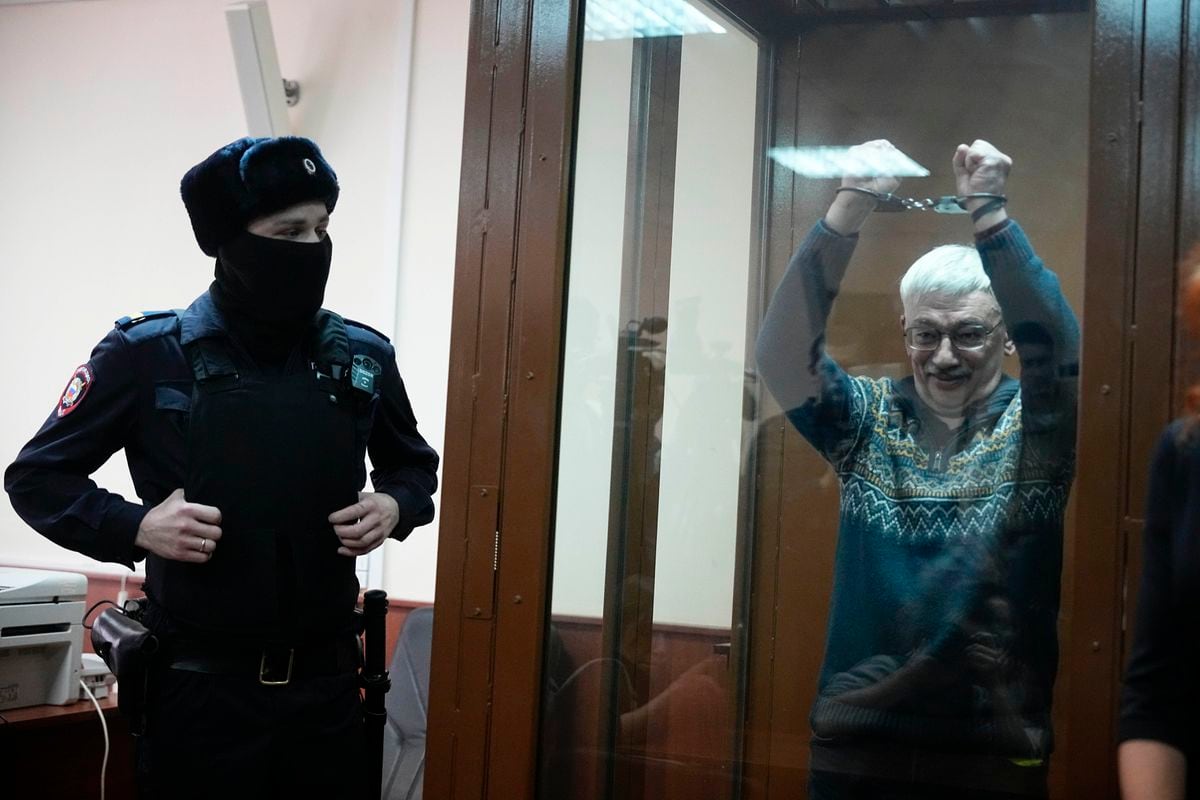Security agents watch in a court in the German capital the start of the trial, this Wednesday in Berlin.MIKA SCHMIDT / POOL / EFE
A man on a bicycle and a fatal shot in broad daylight in a central Berlin park.
That crime, committed last year, is the one on trial as of this Wednesday in Berlin.
Although in reality, what is being tried in the Berlin court goes far beyond the murder and threatens to further cloud the already tense relations between Berlin and Moscow, due to the poisoning of the Russian opponent Alexei Navalni.
The prosecution accuses Vadim Krasikov, 55, detained shortly after the crime, of having acted on behalf of Russian government agencies.
The victim, Zelimkhan Khangoshvili, 40, was a Georgian citizen who fought against Russia in Chechnya and had been a refugee in Germany since 2016, where he tried, according to the indictment, in vain, to distance himself from Moscow.
Reconstruction of the events indicates that in August last year the murderer rode a bicycle to Khangoshvili, who was walking through the Kleiner Tiergarten in central Berlin, and shot him with a silenced Glock 26 pistol.
Once down, he shot him twice more in the head before fleeing.
The murderer then disposed of the bicycle and the gun by throwing them into the river and was promptly arrested by the police in a nearby area.
The assassination sowed outrage in the German government, at the possibility that a foreign government decides to liquidate a dissident on German soil in broad daylight.
The opening of the trial, this Wednesday morning, amid strong security measures, comes at a very difficult time in relations between Russia and Germany.
Kremlin arch-enemy Alexei Navalni is in Berlin after being poisoned with a nerve agent manufactured by the Russian military.
Berlin and other European Union countries have asked Moscow for explanations about its possible involvement in the attempt to silence the prominent opponent.
Germany is now discussing retaliation for the poisoning with its European partners, after the Organization for the Prohibition of Chemical Weapons (OPCW) confirmed Tuesday that samples of a nerve agent from the Novichok family had been found in Navalni's body. .
Last year, after the general prosecutor's office took over the case now under trial and it emerged that it had evidence that Moscow was behind the crime, Berlin has already ordered the expulsion of two Russian diplomats.
The indictment claims that Russia ordered the liquidation of Khangoshvili because of his "opposition to the Russian state, the Government of the autonomous republics of Chechnya and Ingushetia and the pro-Russian Government of Georgia."
The German investigators consider in particular the causes of the murder the actions of Khangoshvili as a Chechen rebel between 2000 and 2004. The Prosecutor's Office also maintains that in 2008 he assembled a unit of volunteers to fight in South Ossetia during the brief confrontation between Georgia and Russia in August of that year.
The Prosecutor's Office believes that the defendant "accepted the state order to kill because he expected a financial reward or shared the motivation to kill a dissident."
Moscow denies any connection to the murder of Khangoshvili, a man classified as a terrorist by the Russian authorities.
The trial is expected to last until the beginning of next year and to be seen in part about the true identity of the accused, who on the morning of August 22, 2019 flew from Warsaw to Berlin.
To enter the Schengen area, Vadim K. used a false passport issued by the Immigration Service in Bryansk, southwest of Moscow.

/cloudfront-eu-central-1.images.arcpublishing.com/prisa/HFGO66GTIFCPJA7MDRECVCBNVM.aspx)







